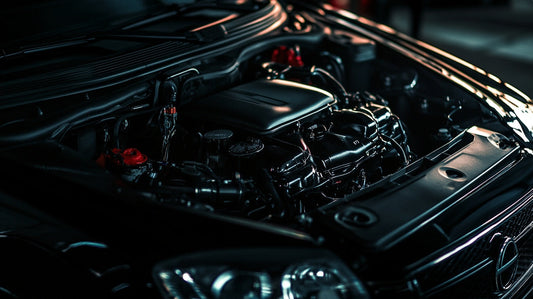When it comes to DIY car maintenance or choosing your next ride, understanding engine differences isn’t just “nice to know”—it’s essential. Today, we’re diving into the three Japanese giants: Toyota, Honda, and Nissan. What are their engine strengths? Where do they fall short? And most importantly—which one fits your needs?
Let’s break it down.
🚘 Toyota: Reliable and Long-Lasting—but Not Perfect
Toyota’s reputation for durability is well-earned. Their engines—especially the naturally aspirated 1.8L and 2.0L models, and more recently their hybrid powertrains—are known for exceptional reliability with minimal maintenance required.
But despite the “bulletproof” label, Toyota engines (and vehicles in general) do come with trade-offs:
-
Interior quality is basic: You’ll often find visible welds and a strong plastic feel.
-
Underwhelming driving dynamics: Many owners describe the ride as “loose” or “van-like,” with noticeable road noise and a lack of chassis feedback.
-
Higher upfront cost: While resale value is strong, the initial purchase price can be a stretch.
🛠️ Best for: Drivers looking for a stress-free, practical, and low-maintenance daily commuter.
🚗 Honda: Performance-Oriented—but Modern Designs Require Care
If you love a bit of driving excitement, Honda is usually the go-to. Older models like the 2.0L and 2.4L Accord, CR-V, and Civic, paired with the legendary 5-speed automatic, are praised for their fuel efficiency, longevity, and mechanical simplicity.
But recent years have introduced a shift:
-
Honda's lineup now centers around the 1.5L turbocharged “Earth Dreams” engine.
-
It delivers more power and better fuel economy—but not without issues: carbon buildup, oil dilution, and emulsified oil have become common complaints.
-
The high compression + high-pressure injection setup is less forgiving in short-trip, cold-start urban driving.
🔍 The performance is still there—but these engines demand better driving habits and regular care to stay trouble-free.
🛠️ Best for: Those who enjoy spirited driving and mostly use their car for regular-speed commuting—not short, stop-start runs.
🚙 Nissan: Affordable and Underrated—but Watch the Transmission
Nissan might not shout as loud as Toyota or Honda, but when it comes to engines, they hold their own.
-
Proven 1.6L, 2.0L, and 2.5L naturally aspirated engines offer solid performance and manageable fuel consumption.
-
Low failure rates and affordable servicing make Nissan a practical choice for budget-conscious buyers.
So what’s the catch? The CVT transmission.
-
Nissan’s CVT lacks the start-up gear found in Toyota and Honda’s systems.
-
In high-load conditions—like carrying heavy passengers or driving uphill often—the belt-and-pulley design can slip and wear prematurely.
-
Long-term stress can lead to serious damage and costly replacements.
🛠️ Best for: Budget-conscious families who drive primarily on flat terrain and don’t need heavy towing or power-demanding performance.
📌 Quick Comparison Chart
| Brand | Engine Strengths | Engine Weaknesses | Recommended For |
|---|---|---|---|
| Toyota | Durable and ultra-reliable | Basic interior, soft ride, costly upfront | Daily drivers, long-term ownership |
| Honda | Great performance, proven older models | Turbo models have oil/cooling issues | Enthusiasts, city commuters |
| Nissan | Affordable, dependable engines | CVT issues under stress | Budget buyers, light-duty usage |
🧰 Expert Tip
“Don’t just look at horsepower or fuel economy on paper—consider how the engine works with the rest of the system, and whether it suits how you drive. Reliability isn’t magic, and fuel efficiency often comes with design trade-offs.”
This guide is brought to you by KakaAutoParts.com.au.
Already decided on your next car? We offer a wide range of engine parts, timing kits, and DIY tools tailored to your model. Need help finding the right match? Our team is here to help you identify exactly what fits—saving you time, money, and guesswork.
Got tips or experiences to share? Join our growing community of DIY car enthusiasts today!




